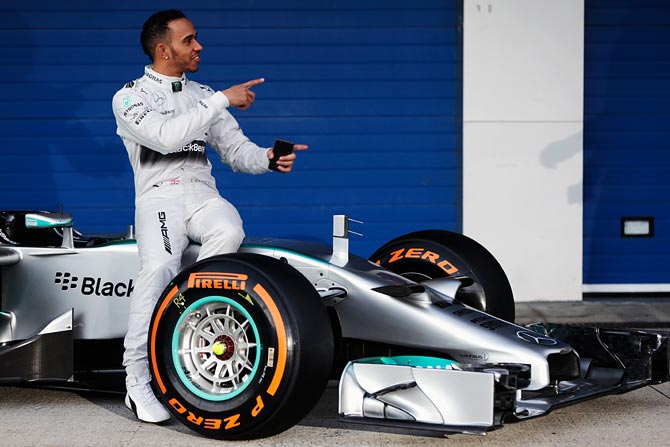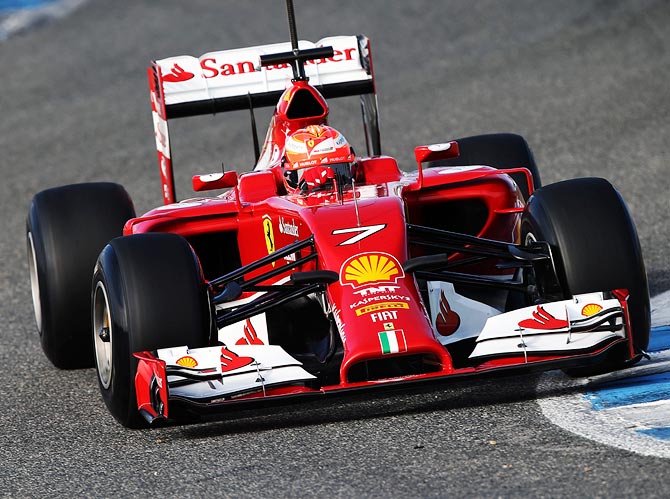
Formula One's 2014 regulations may have made the sport more dangerous rather than improving driver safety as intended, Red Bull's title-winning technical wizard Adrian Newey said on Tuesday.
The Briton, who designed the Williams that Brazilian triple champion Ayrton Senna died in 20 years ago as the sport's last driver fatality, voiced his fears at the start of pre-season testing in southern Spain.
Newey warned that the cars' lower noses, already a talking point because of their ugliness, could lead to a driver's head being more exposed in certain impacts such as front to rear collisions.
"The regulation has been introduced following some research by the FIA (governing body) that suggests the lower nose height reduces the chances of the car being launched, such as the accident Mark (Webber) had when he hit the back of (Heikki) Kovalainen (in Valencia in 2010)," said Newey.
"I must admit I am concerned the opposite may happen - that cars submarine effectively.
"If you hit the back of the car square on, then you go underneath it and you end up with the rear crash structure in your face which is a much worse scenario," said Newey. "For me, it's introduced more dangers than it's cured."

Newey was speaking to reporters before Lewis Hamilton suffered a technical problem and speared his Mercedes into the Jerez tyre wall, with the 2008 champion walking away unscathed.
At the Valencia race, Australian Webber clipped the rear wheels of Kovalainen's car and took off almost vertically, flipping and landing with the driver emerging almost miraculously unscathed.
The sport has seen several near-miss incidents since then of cars flying over the top of others, notably Frenchman Romain Grosjean's Lotus skimming over Fernando Alonso's Ferrari in Belgium in 2012.
Newey also questioned the repositioning of batteries for the new ERS energy recovery systems which he said could overheat and trigger uncontrollable blazes with consequent danger for those in the pitlane.
Batteries now have to be positioned in front of the engine and under the fuel tank.
"It was done on safety grounds but I'm not quite sure why putting a battery under the fuel tank is safer than putting it behind the engine but that's where we are," said Newey.
"These batteries can suffer thermal runaway through impacts, through causes which are difficult to predict," continued the man whose cars have won the last four drivers' and constructors' championships.
"Once they go into such a big battery pack then it's very difficult to control that fire. Frankly, put it in the pitlane and watch it burn."

While that might not be a driver safety issue, with plenty of advance warning of such a problem, Newey said it remains a danger for others.
"For the whole of the pitlane, safety is a big challenge with these cars," he added.
Formula One tightened up pit lane safety last season after a cameraman was hit on the head by a bouncing wheel that came off Webber's Red Bull at the Nuerburgring.